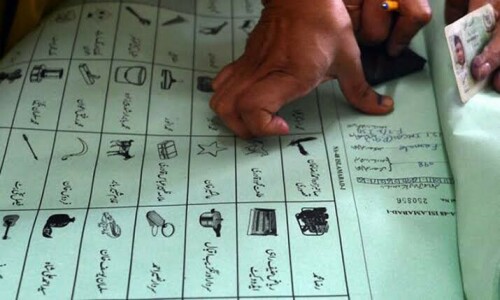WASHINGTON, June 29: The United States has urged Pakistan not to repatriate Afghan refugees as it would have a destabilising effect on the Afghan government.
The Pentagon’s first assessment of the Afghan situation since the US invasion of 2001 deals with the refugees’ issue from the Afghan perspective, completely ignoring Pakistan’s concern that the Taliban militants use the camps to hide and recuperate.
The Pentagon also ignores the US government and media reports saying that areas near Pakistan’s border with Kandahar, which has a high concentration of Afghan refugees, has become a major hideout of Afghan militants.
Instead, the report depicts Pakistan’s demand for the repatriation of these refugees as “a major regional issue” which creates tension between Pakistan and Afghanistan.
The report notes that Pakistan has placed three major camps —Jalozai, Girdi Jungle and Jungle Pir Alizai — on its closure list every year since 2006 but has not closed them. The estimated combined population of these camps ranges from 130,000 to 145,000 and they are in an area which, according to US media and official reports, is a major staging ground for cross-border attacks in and around Kandahar.
It is the same area where Afghan President Hamid Karzai says Mullah Omar and other key Taliban leaders are hiding. US media reports support Mr Karzai’s claim.
The Pentagon notes that last year Pakistan identified four refugee camps — including the aforementioned ones — for closure. However, only the fourth camp, Katcha Garhi, was closed.
“A worst-case scenario based on Pakistan unexpectedly and precipitously closing and clearing multiple camps and expelling Afghans could result in up to 400,000 refugees trying to return to Afghanistan,” the Pentagon warns.
Under international pressure, Pakistan has committed itself to voluntary, not forced, repatriation and has stated that it will allow refugees from closed camps to relocate to other camps.
The Pentagon’s main concern, according to this report, is that “mass repatriations … would severely tax the existing Afghan infrastructure, particularly in urban areas”. But neither the United Nations High Commissioner for Refugees nor Pakistan believes that a mass repatriation will materialise, the report adds.













































Dear visitor, the comments section is undergoing an overhaul and will return soon.